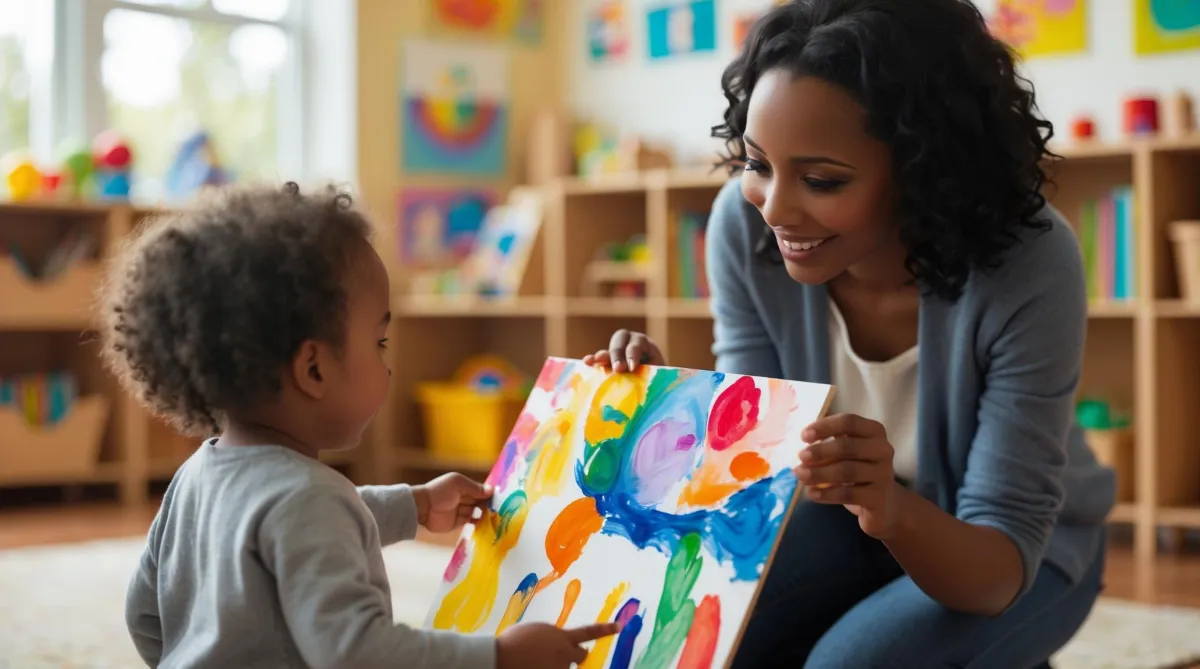
Why “Good Job” Might Not Be Helping Your Child

Why “Good Job” Might Not Be Helping Your Child
Thoughtful Praise That Builds Real Confidence
By KidsHaven Childcare Center
At KidsHaven, we understand how much love is wrapped up in a phrase like “Good job.”
We say it when children draw a picture, help a friend, or clean up their toys. It’s short, sweet, and encouraging—right?
But what if that simple phrase isn’t doing what we hope it is?
What if it’s actually limiting your child’s motivation, discouraging creativity, and making them more dependent on your approval?
Let’s take a closer look at why we encourage parents and caregivers to go beyond “Good job,” and what you can say instead to truly support your child’s emotional growth.
The Hidden Problem with “Good Job”
“Good job” isn’t bad, but it can be overused. Here’s why that matters:
1. It’s Generic
It doesn’t tell your child what they did well.
Did they work hard? Share kindly? Make a creative choice?
Children need specific feedback to really understand and grow.
2. It Shifts Motivation
When kids hear “Good job” all the time, they start doing things for praise instead of doing them because they’re meaningful, fun, or challenging.
3. It Can Create Pressure
Children may begin to worry: “What if I don’t get a ‘good job’ next time?”
This can make them less likely to try new things or take healthy risks.
What to Say Instead
At KidsHaven, we use intentional language that helps children build internal motivation, resilience, and a strong sense of self.
Here are some easy swaps you can use every day:
1. Describe What You See
“You worked hard on that tower—it’s really tall!”
“I see you used all the colors in your drawing!”
Why it works: This shows your child you’re truly paying attention.
2. Acknowledge the Effort
“You kept going, even when the pieces didn’t fit.”
“You didn’t give up—that was brave!”
Why it works: This builds a growth mindset and confidence in problem-solving.
3. Ask Thoughtful Questions
“How did you decide what to draw?”
“What part was the hardest?”
Why it works: Questions invite your child to reflect and share their thinking.
4. Recognize Kindness and Values
“That was thoughtful of you to share your toy.”
“You were very patient while waiting.”
Why it works: This reinforces positive behavior based on values, not reward.
5. Offer Silent Support
A warm smile. A gentle nod. Being there without judgment.
Why it works: Sometimes, just being present is the most powerful praise of all.
At KidsHaven…
We believe children thrive when their efforts are noticed, their voices are heard, and their uniqueness is valued.
When we pause and go beyond “Good job,” we create space for:
Meaningful conversations
Stronger connections
Lifelong confidence and independence
So next time your child hands you a drawing, cleans up their blocks, or helps a friend—try something new. Speak with intention. Praise with presence.
They’re listening—and learning how to speak to themselves, too.
Join the Haven
Looking for more ways to support your child’s growth and emotional development?
Follow KidsHaven for weekly tips, gentle parenting strategies, and creative play inspiration.
KidsHaven Childcare Center — Where every child feels safe, seen, and celebrated.